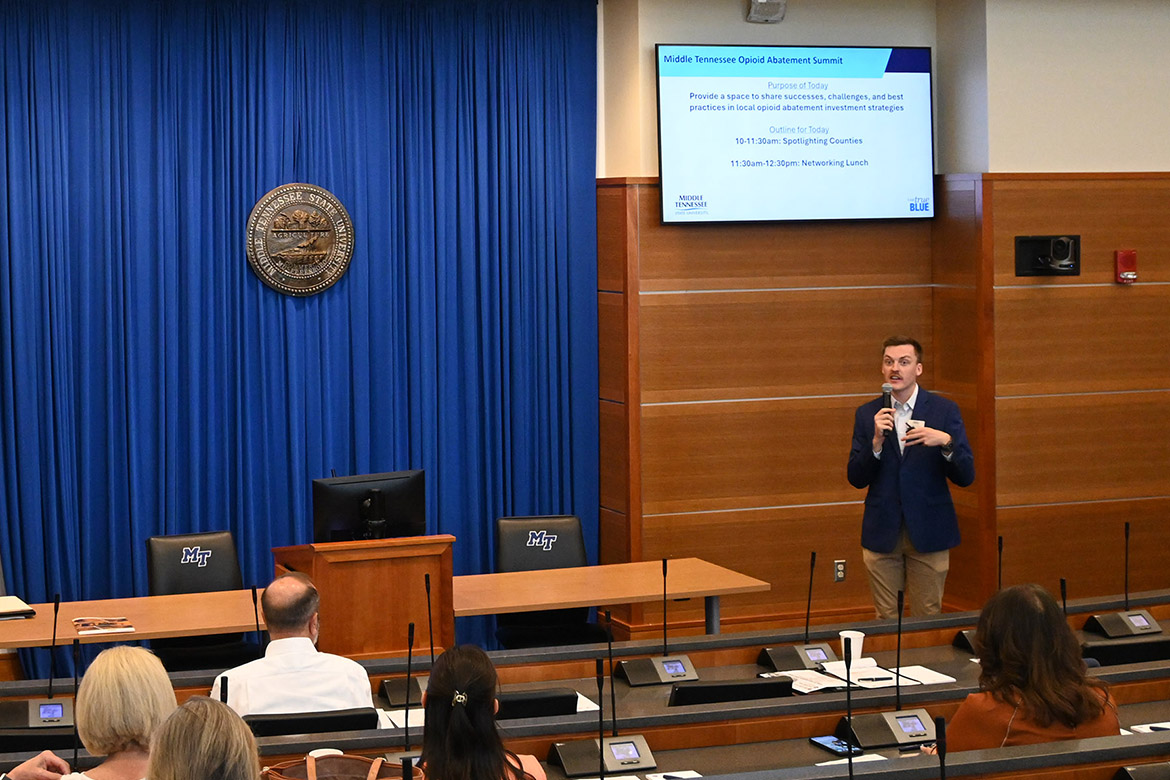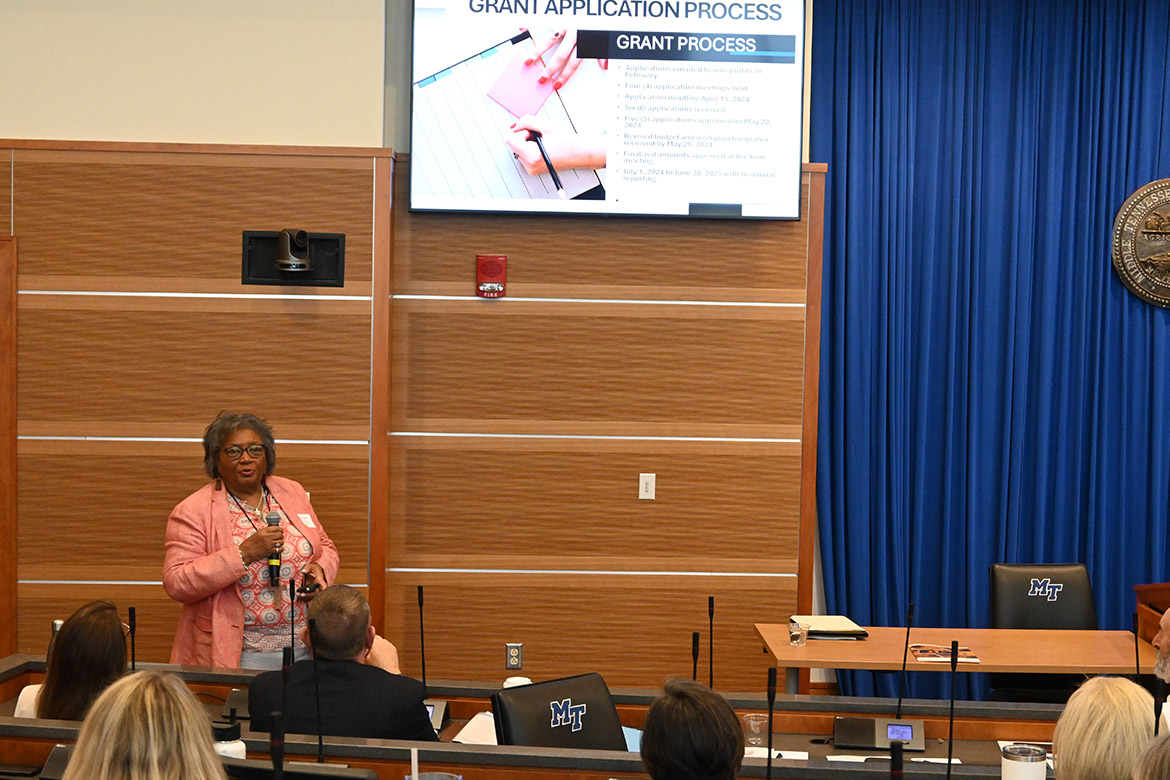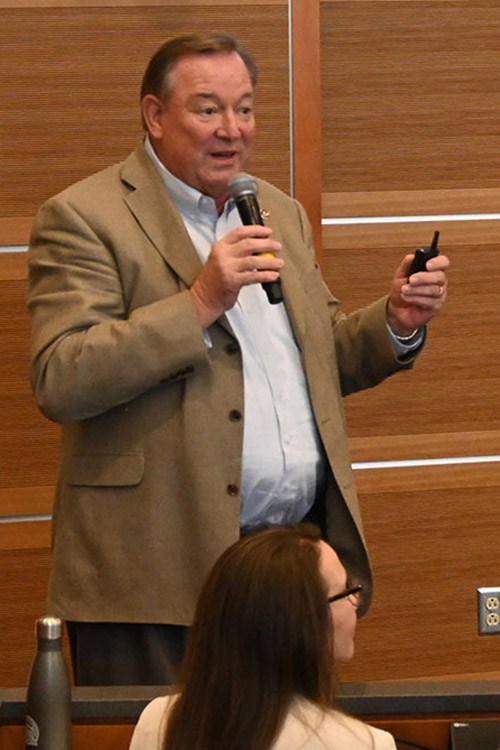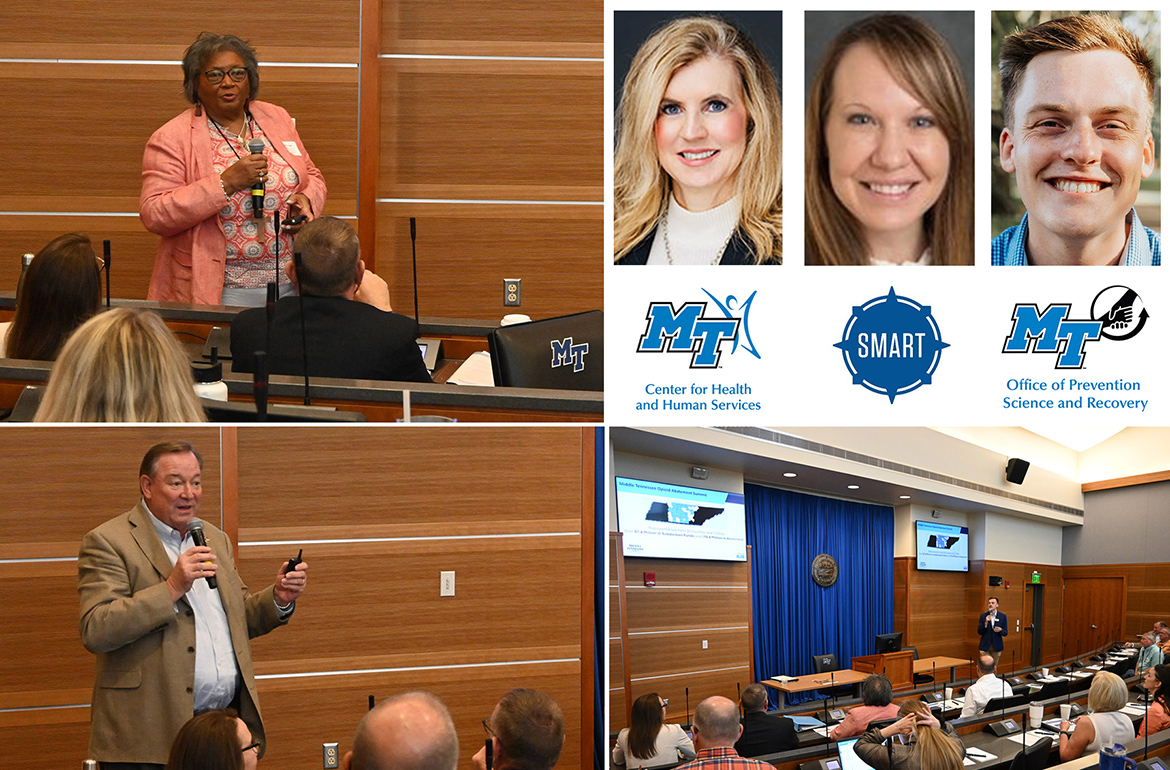MURFREESBORO, Tenn. — In an effort to maximize the use of Tennessee’s opioid abatement settlement funds, Middle Tennessee State University and the UT SMART initiative hosted the Middle Tennessee Opioid Abatement Summit on campus.
Stakeholders from over 20 counties and seven cities across the Midstate — including mayors, law enforcement, and representatives from prevention coalitions and abatement councils — registered for the one-day summit led by the University of Tennessee’s Substance Misuse and Addiction Resources for Tennessee, or UT SMART initiative in partnership with MTSU’s Office of Prevention Science and Recovery and the Rutherford County Opioid Board.

“We wanted to create a space where people who can make decisions in their county and in their city could gather together and talk about what’s working, what challenges we have, what do we need help on, and what everybody else is doing,” said Chipper Smith, senior project coordinator in MTSU’s Office of Prevention Science and Recovery, or OPSR, who welcomed the crowd in early June.

Jennifer Tourville, director of the UT SMART Initiative, included statistics on the systemic rise of the opioid epidemic in her presentation.
UT’s SMART initiative guides community leaders in implementing evidence-based, cost-effective strategies that mitigate damage from substance use disorder and the opioid epidemic across Tennessee. As a part of the Institute for Public Service, SMART seeks to empower communities and local governments to combat the overdose epidemic.
Tourville presented numbers related to the onset of the prescription opioid crisis, sharing that in Tennessee there were more prescriptions written annually than the number of people in the state, with over 6 million prescriptions written each year for many years.

“We decreased the prescriptions, but overdose deaths increased,” Tourville said, with a recent average of nearly 4,000 deaths annually. “These aren’t older people. These are young people. These are moms and dads, our kids, and our workforce.”
In 2023, MTSU’s Center for Health and Human Services and Data Science Institute launched the Office of Prevention Science and Recovery to provide expertise and technical assistance to the Rutherford County Opioid Board, which facilitates the disbursement of local grant funding.
The Center for Health and Human Services announced plans for three abatement council grants totaling $9.1 million, including funding that will support infrastructure expansion for OPSR.
“This will help MTSU reach out to other local governments and boards outside of Rutherford County, as well as provide support for abatement funding grantees” said Cynthia Chafin, director of the MTSU Center for Health and Human Services. “We want to be a resource and part of the solution to the opioid epidemic.”

No population segment has been immune to the crisis. And since 2021, there have been a series of landmark settlements involving drug distributors, pharmacies and manufacturers that have been identified as contributing to the opioid crisis.
The National Academy for State Health Policy estimates more than $50 billion overall will be awarded to states as a result of these agreements, the second largest public health settlement in U.S. history since the nearly $250 billion tobacco master settlement of the 1990s.

The Tennessee General Assembly established the Opioid Abatement Council to decide how to distribute the over $1 billion that will be coming into the state over the next 18 years as a result of these settlements. In March, the council approved 116 grants to 85 distinct recipient agencies that will be funded over the next three years equaling nearly $81 million in awarded funds.
The UT SMART Initiative is also supporting local governments by assisting with identification of funding strategies, developing plans for spending local settlement funds, creating processes for funding community organizations, applying for external state and federal funding, and monitoring program outcomes.
In addition to Rutherford County representatives, including County Commissioner Craig Harris, who has been instrumental in the fight against opioid addiction, the summit featured talks by Marshall County Mayor Mike Keny and Community Clinic of Shelbyville and Bedford County Executive Director Fredia Lusk.
After the initial session, participants broke up into small gatherings of like-sized communities to share investment strategies, successes and challenges. The final part of the summit focused on best practices for the coming year.
“This is all in an effort to heal our communities and we know names and faces of people who have been impacted by this disease,” said Smith, the coordinator in MTSU’s Office of Prevention Science and Recovery.
For more information on the office as well as MTSU’s Center for Health and Human Services, email Chafin at Cynthia.Chafin@mtsu.edu or visit www.mtsu.edu/chhs.
Learn more about the UT SMART initiative by visiting https://smart.ips.tennessee.edu/.
— Nancy DeGennaro (Nancy.DeGennaro@mtsu.edu)


COMMENTS ARE OFF THIS POST